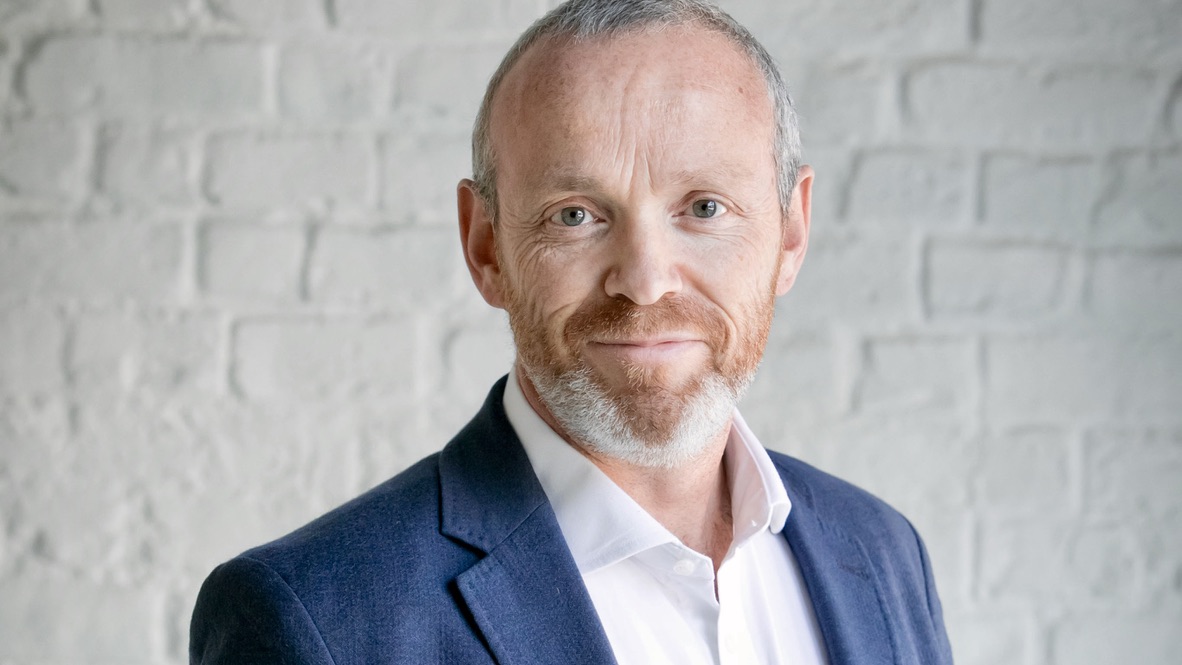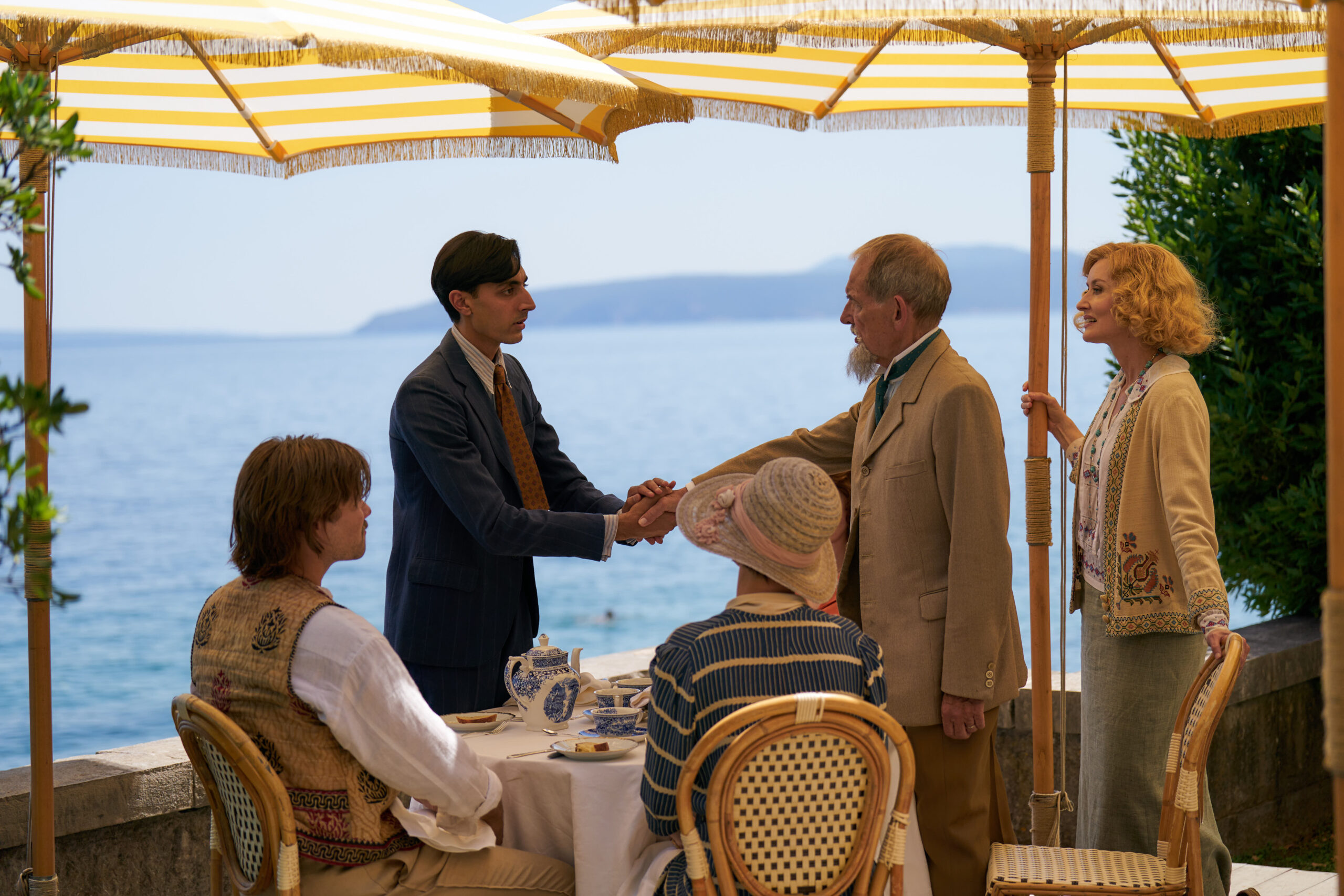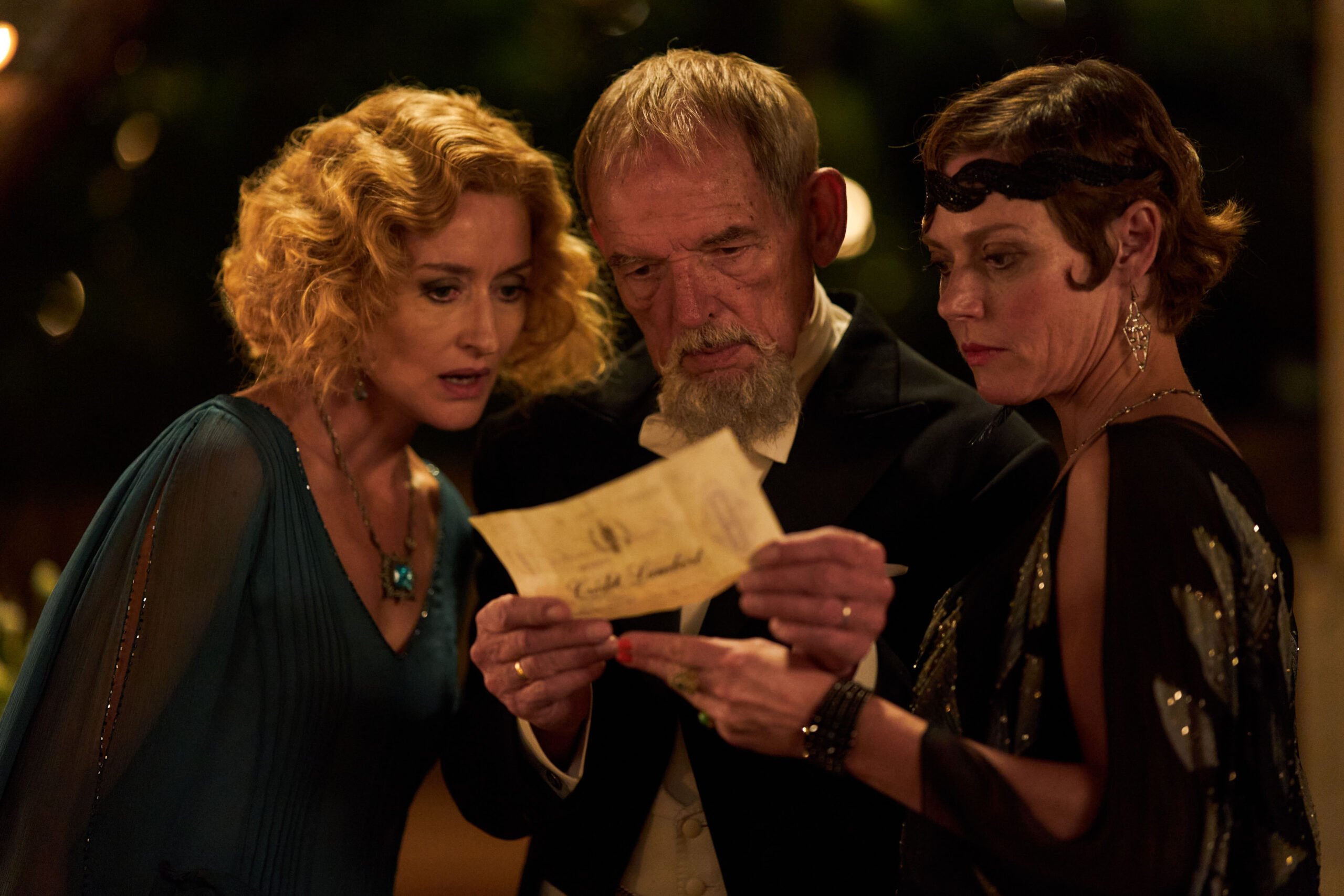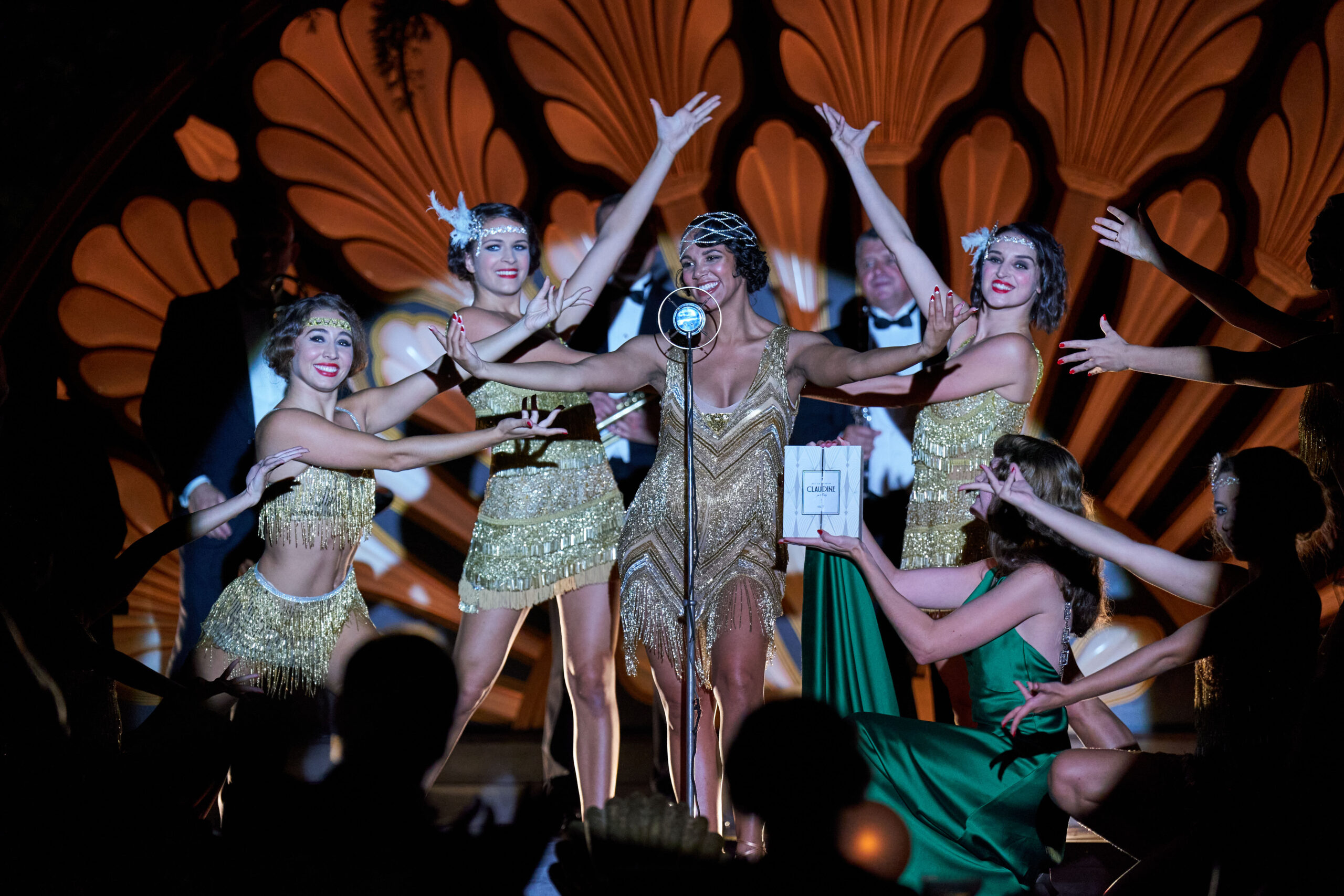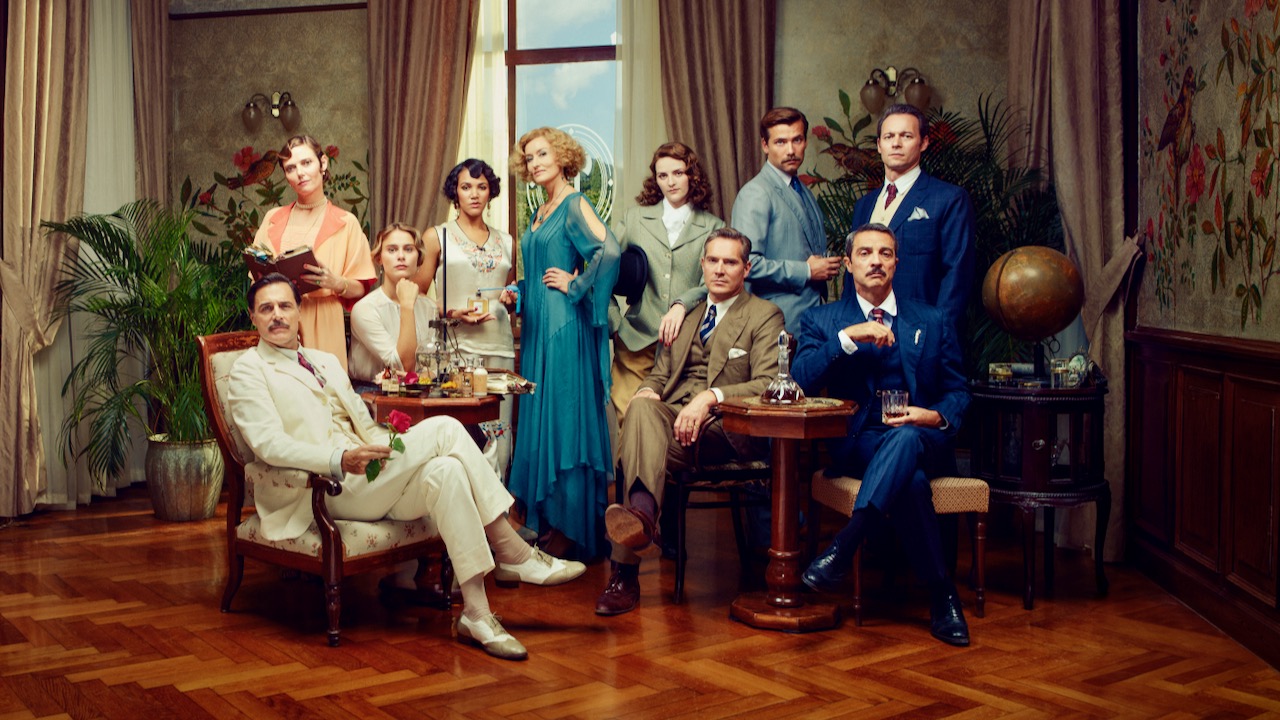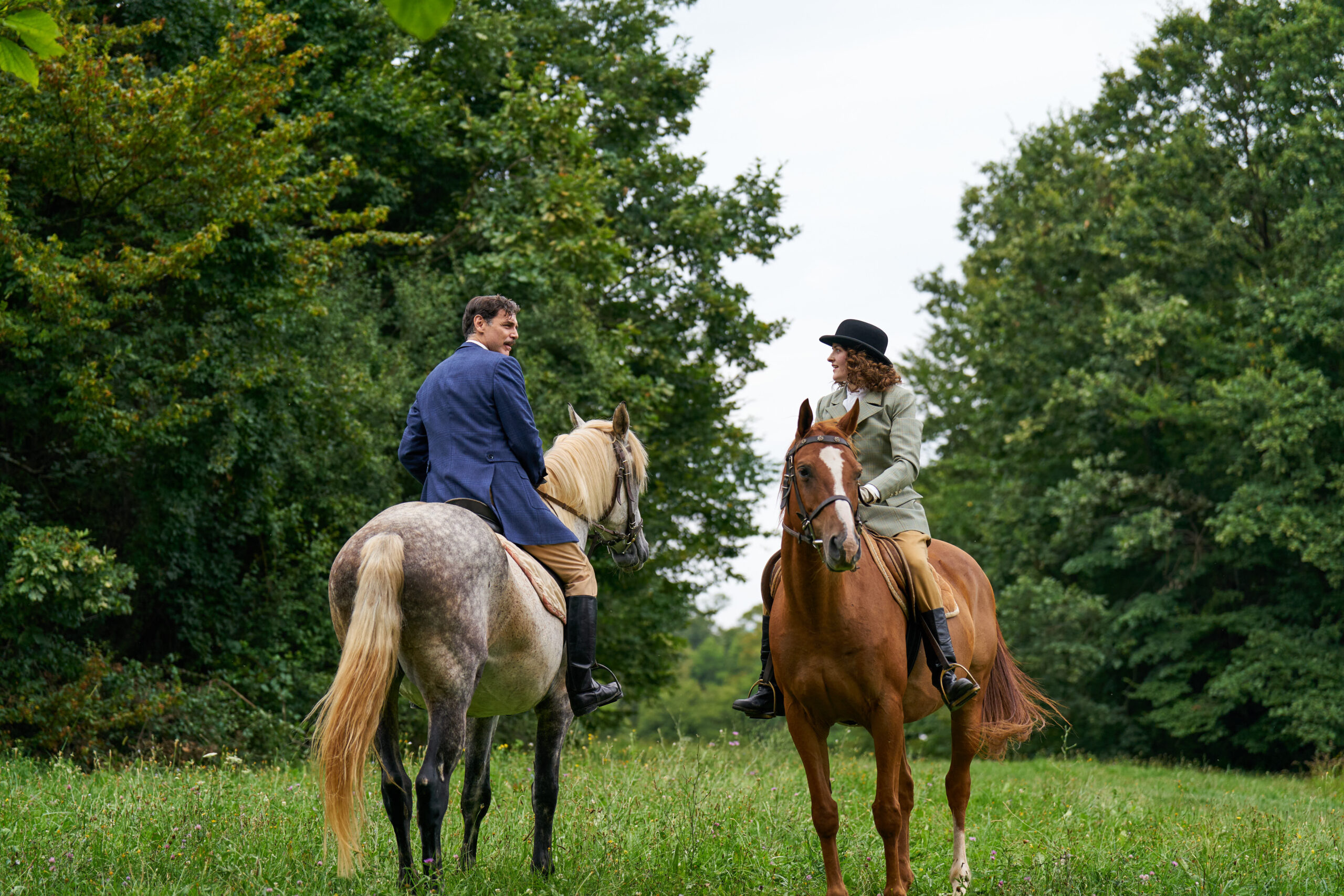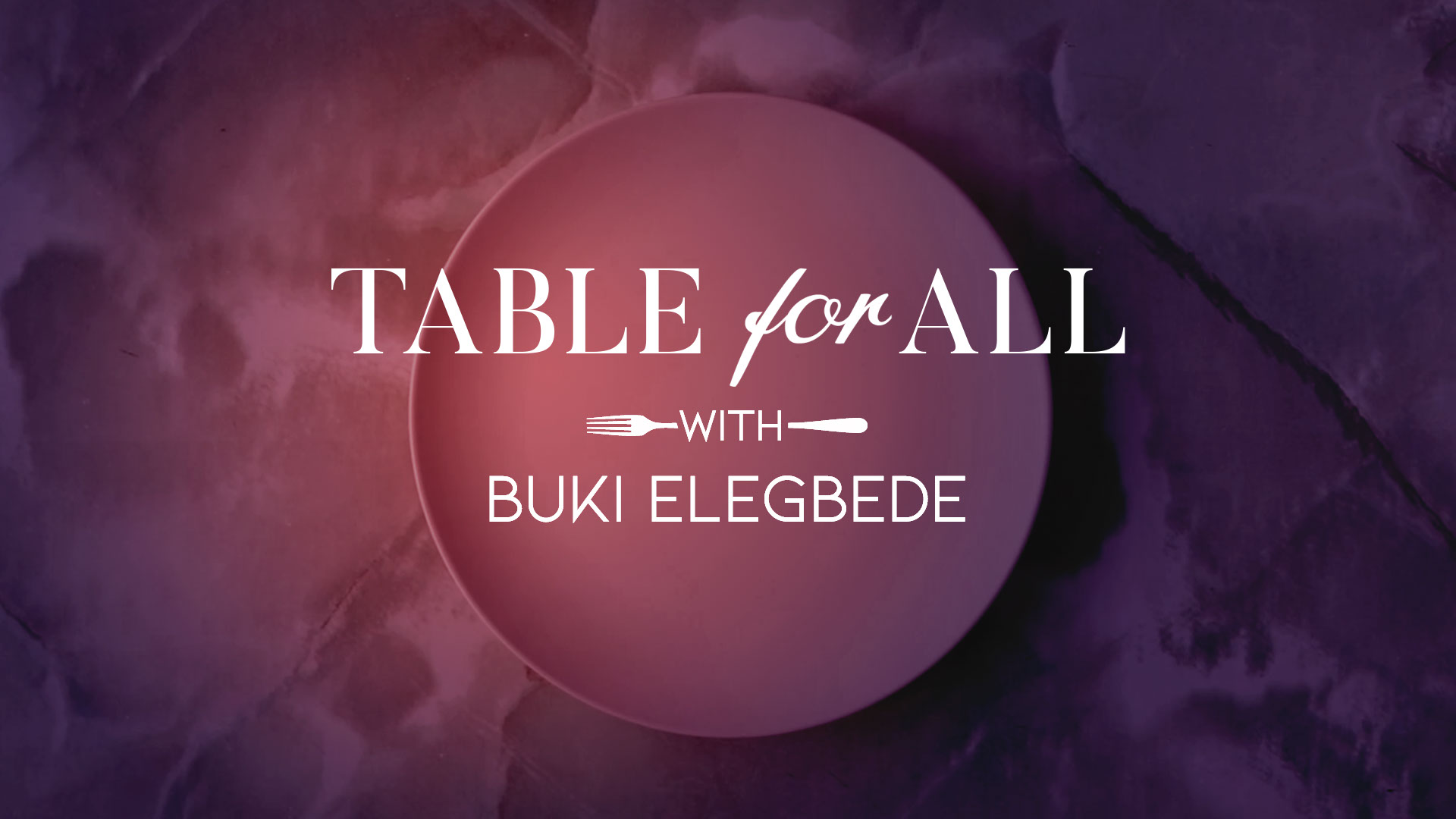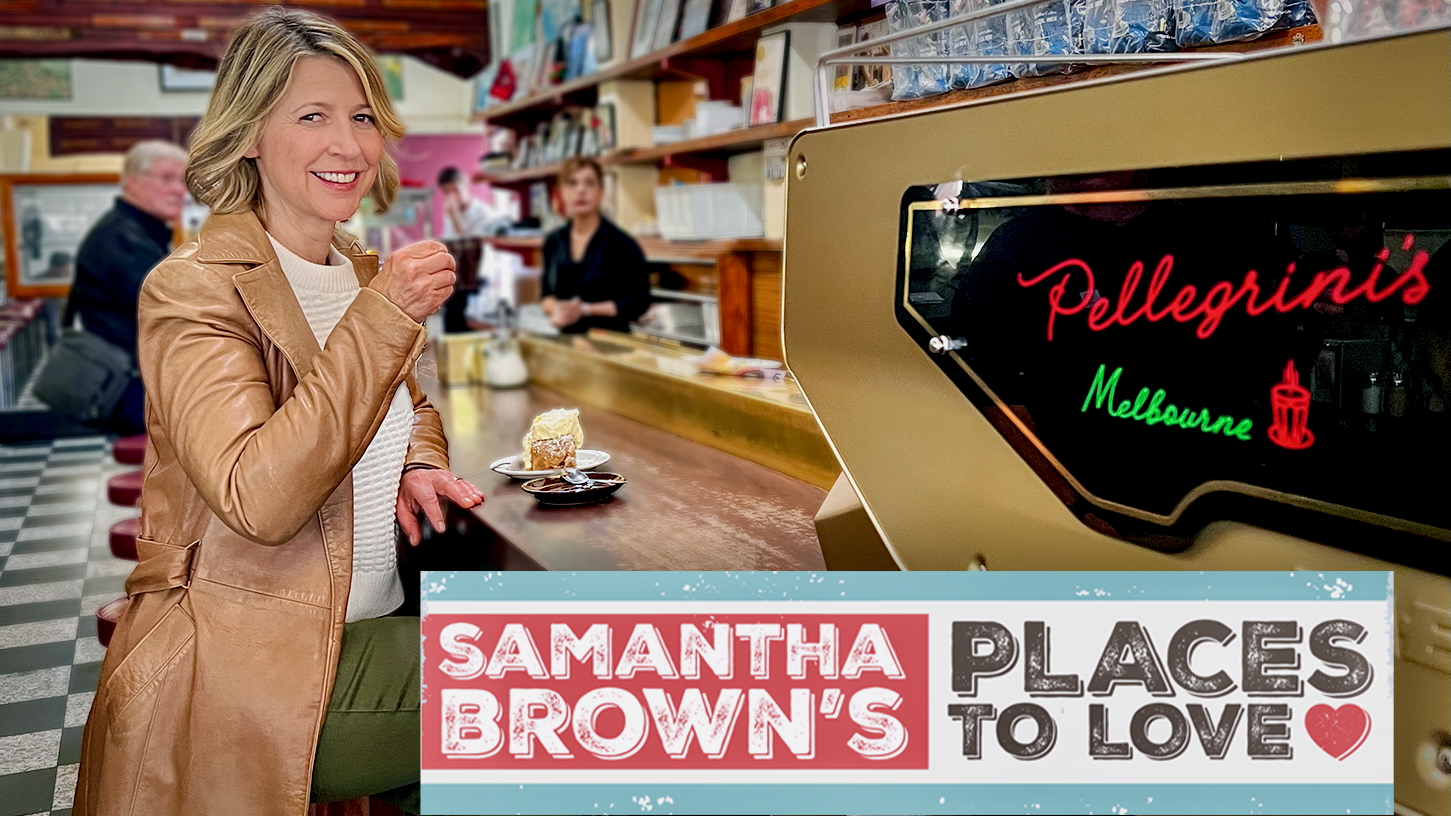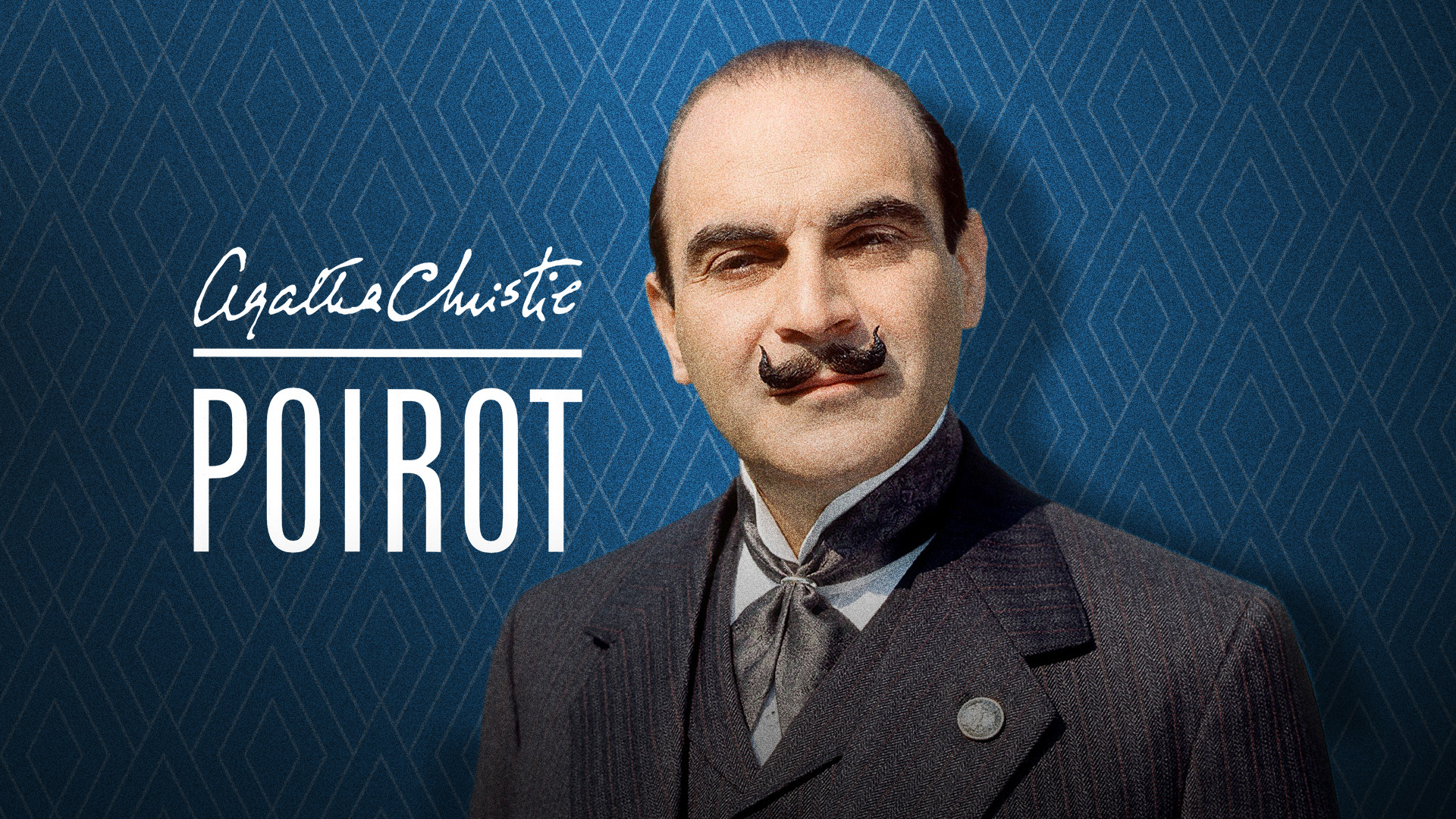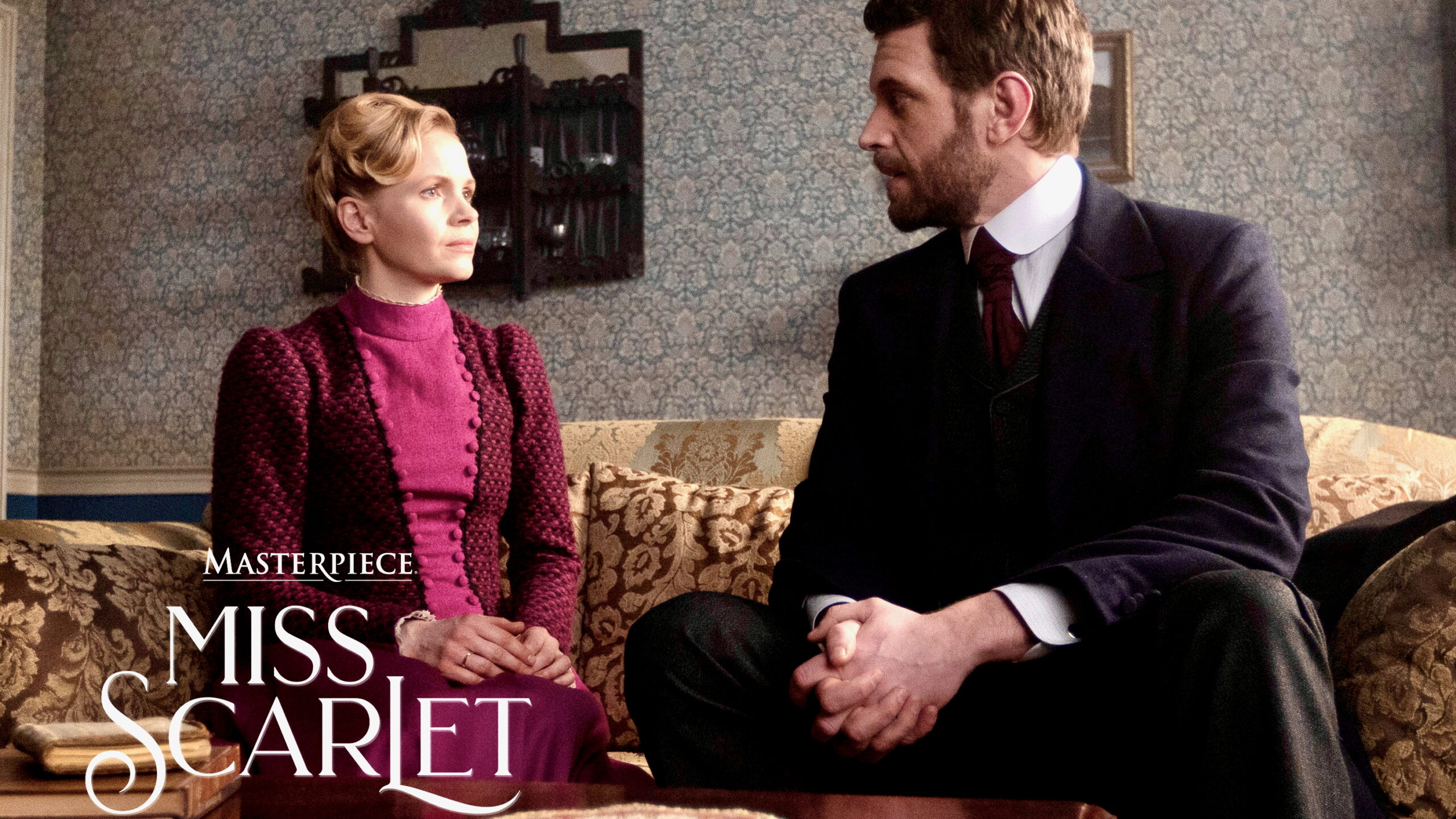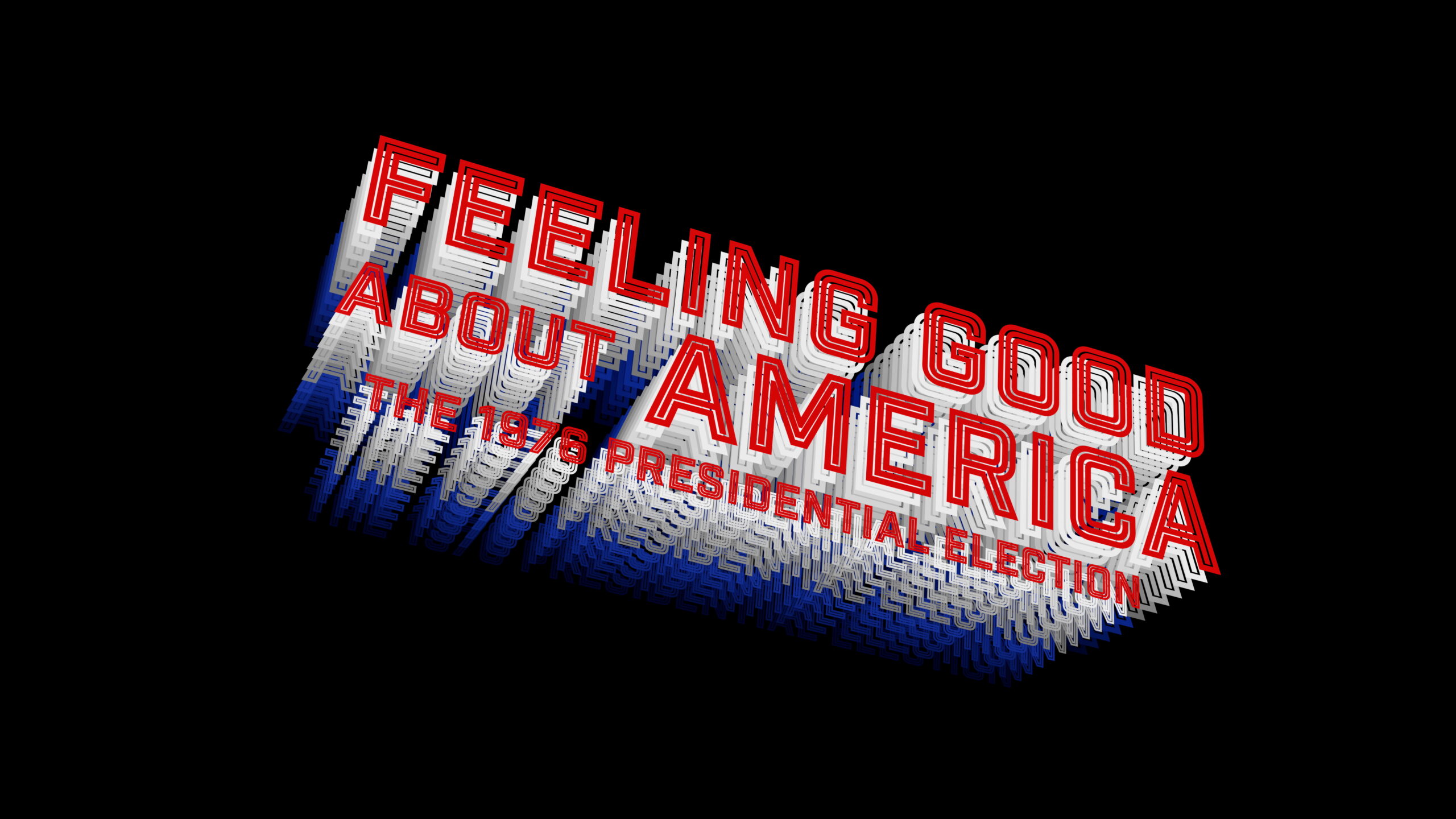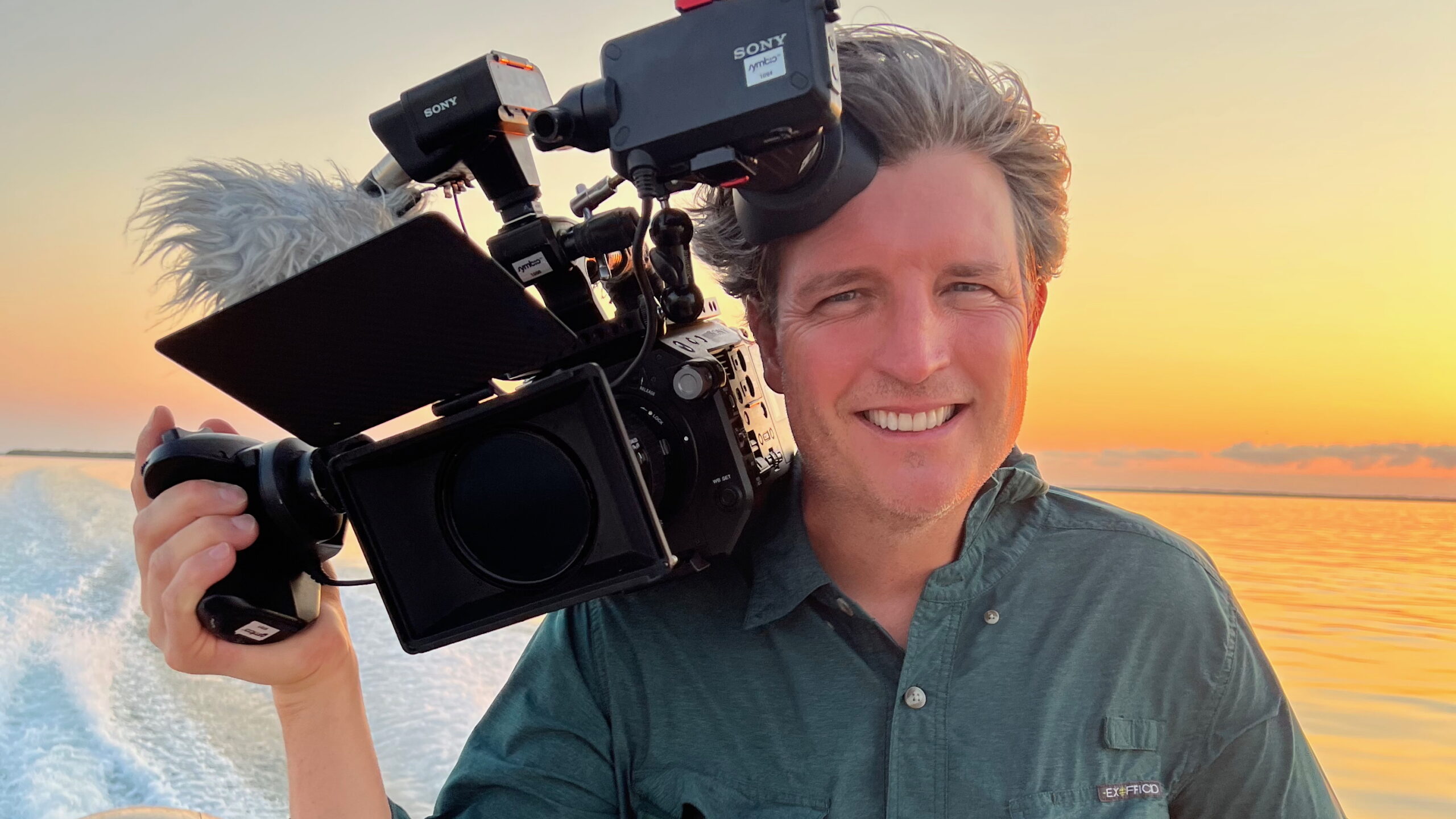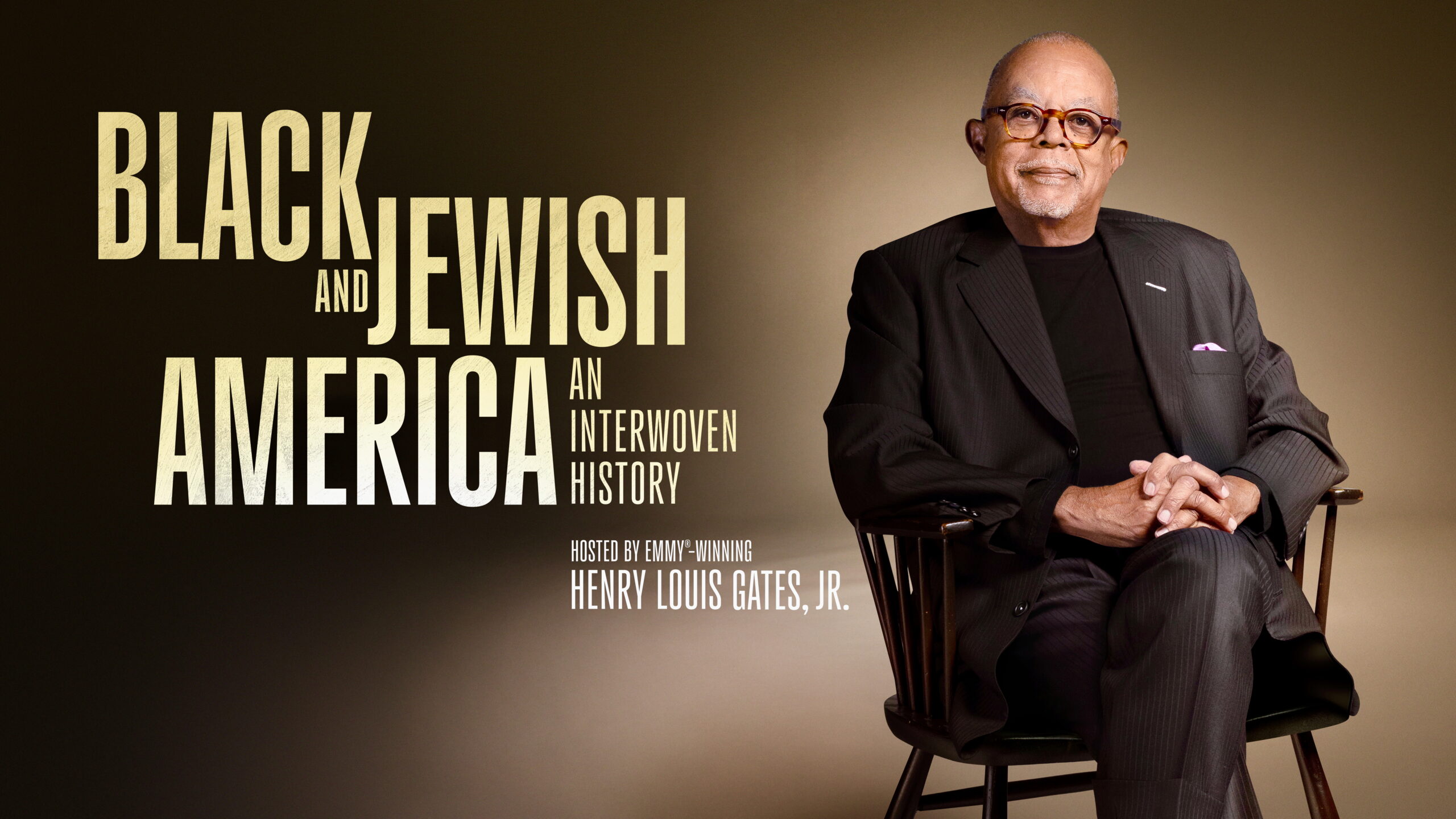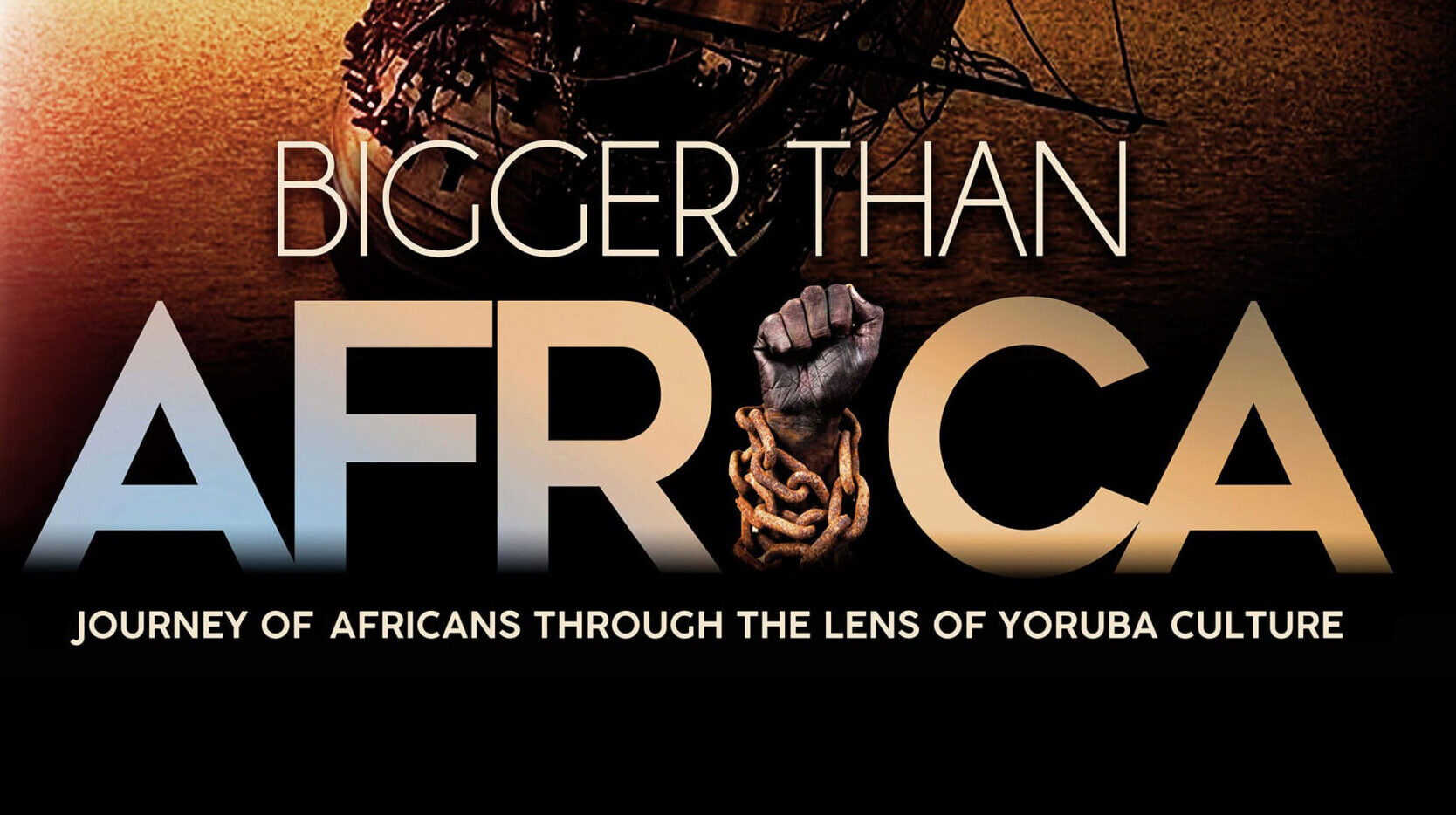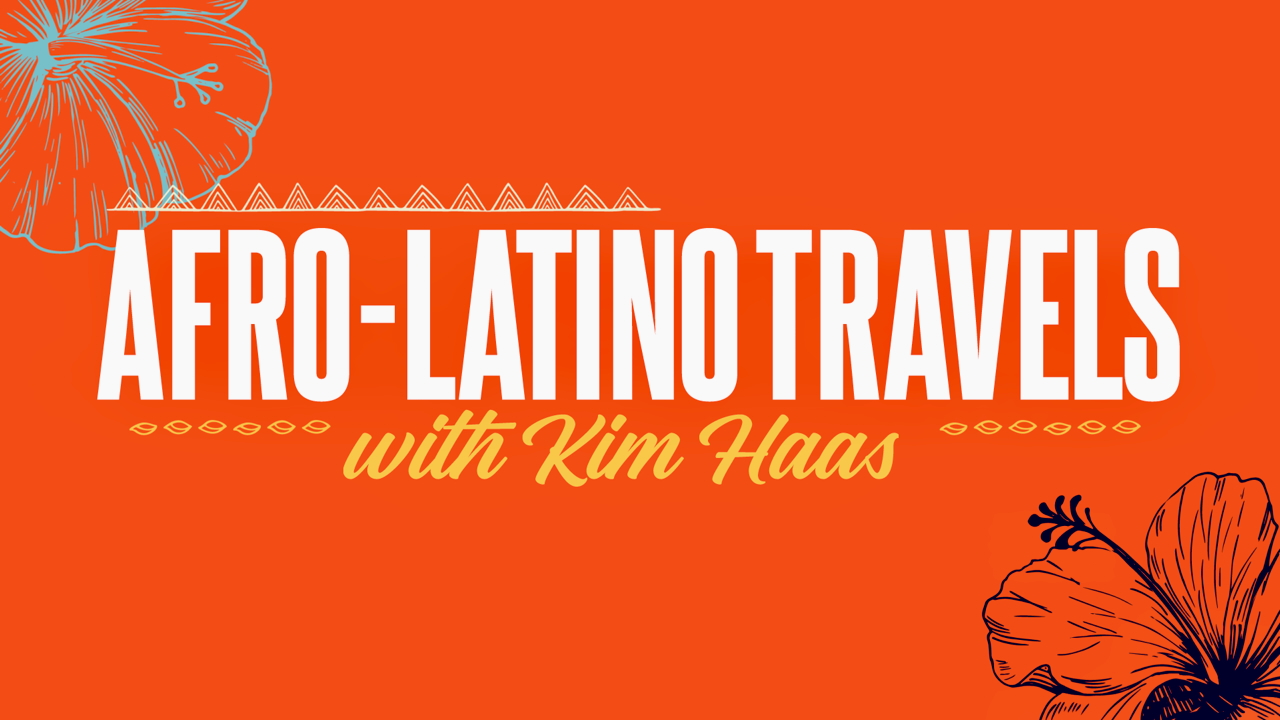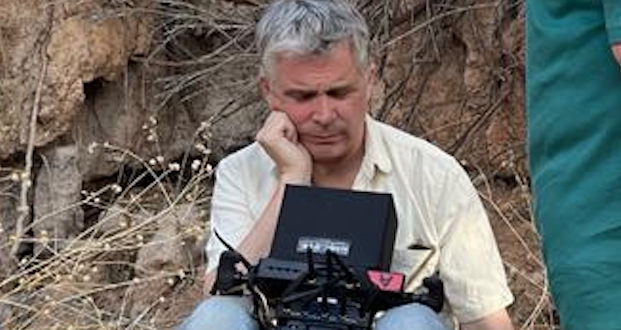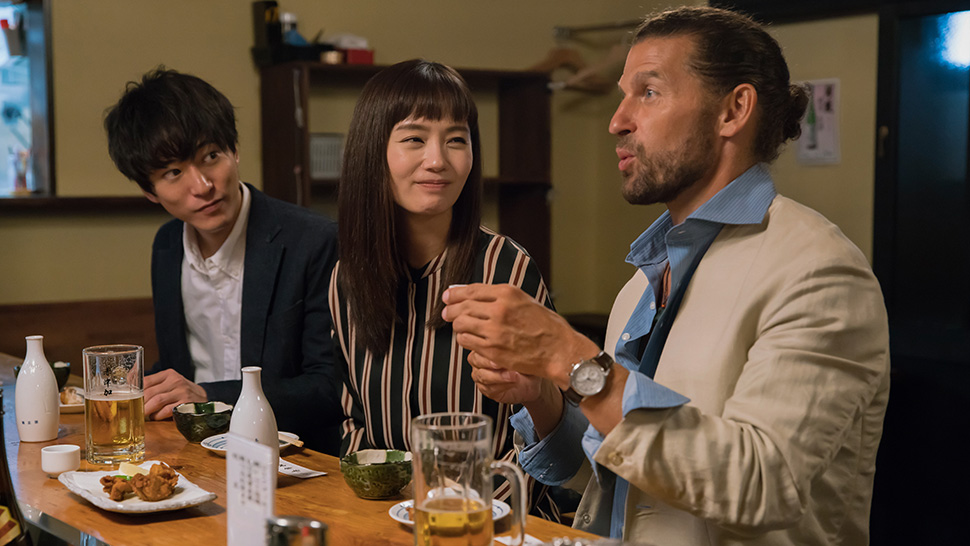[Note: Spoilers for Season 3 are discussed in this interview.]
Step into the glamorous world of Hotel Portofino, where the elegance of the 1920s meets gripping drama, intrigue, and romance. Imagine a luxurious Italian getaway that blends the charm of Downton Abbey and the adventurous spirit of The Durrells. Season 3 just captivated audiences this summer, with episodes now available to stream on KLCS|Passport.
Set against the turbulent backdrop of the 1929 stock market crash, we find hotel owner Bella Ainsworth thriving in her entrepreneurial pursuits—crafting bespoke lotions and perfumes in a hidden lab within the hotel. Meanwhile, her husband Cecil grapples with the impact of this global upheaval on their family and their faltering marriage.
KLCS had the exclusive opportunity to talk with the brilliant mind behind the series, creator and writer Matt Baker, from London. In this illuminating interview, we explore how a life-changing moment during the pandemic unlocked new doors for Baker, how he develops storylines and characters that continue to captivate fans. Discover the inspiration, passion, and vision that shaped Hotel Portofino —from its lush settings to its complex characters.
Matt, how did this show come about and how did the concept for show concept come about?
MB: You’re taking us back quite a long time to London in the fall of 2020, being stuck like we all were, a lot of us inside because of the pandemic; and talking to the executive producers at Eagle Eye, Walter Iuzzulino and Jo McGrath. Walter and Jo had been to Portofino for a film festival a couple of years previously and Walter’s a native of Liguria in Italy, which includes Genoa, the Italian Riviera, and Portofino is the jewel of that. They wanted to come up with an idea of a drama based in Portofino for quite awhile and we started talking about it. At the time, when we were all in lockdown, and it was all such a depressing and terrifying time; the thought of a sunny escapist drama based in the sunny Italian Riviera was a bit of a gift for me as a writer. So, it emerged from conversations with Eagle Eye about wanting to do something period-based in that time with a very specific idea that PBS might be a broadcaster for it. I was given a brief with a time and a place and then the pieces fell into place from there. It was just a question of doing a lot of research and what would a British family have been doing in Italy at that time and what were the circumstances, and it grew from there.
That was my next question – did you do research and was there ever any such UK family owning a hotel in Italy at that time?
MB: I did do research and there were quite a few expats in Italy at that time, not necessarily owning hotels. It was not based on a specific family or specific circumstance, however, I think Italy has always held a fascination for British people, for British tourists in particular. There’s a long history of British people going to Italy, settling in Italy, spending time in Italy, doing the grand tour. Once you start looking, there was a lot of material there. And of course there’s quite a lot of literary precedence to this. You’ve got Enchanted April, which is a novel set in the ‘20’s about a group of women who go on holiday to Portofino. You’ve got Tea with Mussolini, a group of British expats who got caught up in the late stages of Mussolini’s reign in the years leading up to the second World War. You’ve got A Room with a View, and (E.M.) Forster. So there was quite a lot of literary precedence for this type of story. Obviously not to say that Hotel Portofino is based on them in any way, but those were things that inspired me when I was doing my research and trying to come up with the characters and storyline.
Did you pattern Cecil or Bella after anyone?
MB: (laughs) The diplomatic answer is “No,” the undiplomatic answer is, “I joke with my wife that Cecil’s my alter ego.” Of course he’s not, but the honest answer is I was brought up at a time, I’m a child of the post-war generation, I was born in the ‘60s, I was brought up in a very modern world, but the Britain I grew up in was still very influenced by the Edwardian period. The school I went to still had a lot of the language and the traditions of that time, so the character isn’t really based on anybody, but he’s based on a caddish idea of an Edwardian gentleman that’s quite prevalent in British society. Again, there are plenty of those archetypes if you look around. So Cecil’s to a certain degree inspired by my background and having gone to a boys school and met certain types of people and read certain types of books. The inspiration for Bella was seeing women of my mother’s generation, who’s not as old as Bella, she’s a generation after, and the frustrations they went through and the struggles they went through for the right to live an individual life and make their own choices. She’s based on an observation of what women, still, in many societies, but up until recently, Western societies were still going through in order to try and establish their rights to live as an individual rather than live by the rules of the men who surrounded them.
Even though Cecil is a ne’er-do-well, I think Cecil really does love Bella, in his own way.
And I think Bella loves him, if he were just a more standup and stronger guy. Is that how you see them?
MB: Totally, yeah, I don’t think characters who are irredeemably black and white are very interesting, so Cecil is very a flawed individual, we all have flaws. And his flaws are the driver for dramatic circumstance, if you like; and part of what keeps Bella with him is fear of disapproval. In part, it’s about social rules and going to Italy is actually the thing that frees her from her own restrictions. I think in Hotel Portofino, when I was writing it, I was very much thinking about characters in terms of the forces of being progressive and the forces of conservatism are not all bad, because we see in modern times, there are arguments for both sides, aren’t there? It’s not like in America, the Democrats have got all the right arguments and the Republicans have got all the wrong arguments. Just like in the UK, it’s not like the British Labour Party has all the answers and the Conservatives have none of them. My worldview sort of sits somewhere in the path between those two forces. So Cecil’s not irredeemably bad and Bella’s isn’t irredeemably good, by the way. She has lots of great qualities, but she has flaws as well. But her flaws are probably more the results of circumstance, or not being prepared to take on the forces that are constricting her. But the story is a long journey, for her reaching the point where she can free herself from her concerns and her worries abut what society will think about her.
I love that the show gives me an escape from every day life. It also reminds me of The Durrells, the British family living in Europe between both world wars, so they gave you that brief – they wanted a time period between both wars as well, similar to The Durrells?
MB: To be honest, I’ve never seen The Durrells. What I get a lot with Hotel Portofino, is “It’s very similar to The Durrells,” and “Oh, it’s an attempt to do a version of Downton.” Honestly, I’ve never seen a frame of either show, so that wasn’t the inspiration for it. But I get the need for people to put things in boxes. The thing I find interesting about the ‘20’s is the parallels, 100 years. I was writing this in 2020 and 2021, and I’ve been writing it across the first three years of this decade. I don’t want to overstate it, but there are a lot of parallels to the world we are in now, 100 years later. The impact of technology on people’s lives, the liberation of women in particular in the post war period before the second World War, because of all the consequences of the war that had been driven by this patriarchal male world view. And the politics, the rise of fascism, and this whole struggle, if you like, between individualism, this desire for individual expression and the right to live right by your own rules. So I think in the ‘20’s it was much more sort of the loss of religion and tradition and now it’s a different argument, but some of those arguments are still doing the rounds. So it’s a fascinating period and the other thing obviously about the ‘20’s, is it’s a very cinematic period. You’ve got all the costumes, you’ve got the music, so it was a chance to have quite a lot of fun. In each season you’ve got this character Claudine (Lily Frazer), whose a little bit o an outlier because she’s woman of African American descent. When you first meet her in this context, it’s a little bit strange, but again, there were precedents. I’m not saying she was based on Josephine Baker but he fact that people like Josephine Baker did exist and were out there, it sort of gives you dramatic permission in a way. Claudine was a source of style and fun. She’s very much a force pushing for liberation in society. So it’s a great period to base characters in and tell stories in, I think.
The casting is so perfect, did you always have in mind Natascha McElhone
and Mark Umbers as the couple owning this hotel?
MB: No. When I wrote it, it was written on a piece of paper before anybody had been cast. I pretty much wrote a first draft of all six episodes a before anybody had been confirmed. But the great thing is about getting second and third seasons, repeat business if you like, is working with great actors like Mark and Natascha, you create a character, but they really bring it alive. And obviously, you hope as a writer, you’re giving them good material to work with, but a character on the page never really exists until an actor inhabits it and breathes life into it. And Mark and Natascha made those parts so distinctively their own. I didn’t have anybody in mind when I was writing Season 1, but now in retrospect, you think, “Hang on, they were meant for the part, weren’t they?” (laughs) They inhabit them so perfectly.
For a long time I thought it was filmed in Italy, but it’s in Croatia. But it seems a good fit for the storyline. How do you feel about how it looks? Does it matter to you at all?
MB: It’s a good question. I think, particularly when you’re writing, you have to let it go at the point of writing. I’m not the showrunner, I’m the writer and creator and I leave it obviously with the creative team. But I’m not like some writers who are showrunners also; who are sort of controlling every aspect of their creative vision. I’ve had to sort of let it go. I think what they did with Season 1 and 2 very cleverly, is they combined the internals with the villa they found in Croatia to the stand–in for the hotel. They did shoot quite a lot of externals in Croatia, but they also shot some externals in Portofino, so there’s a sense of Portofino in the story. Part of the pleasure of the show is all the incredible visuals from that part of the world. But, coming back to Walter whose the [executive] producer on the show and business partner in Eagle Eye, he’s from that part of Italy, he’s from Liguria. And, obviously, that actual port of Portofino the harbor is a distinctive place, but the coast along there, he always says the coast of northern Croatia is a very good fit for the coast around Portofino. And having been to Portofino a couple of times now, as a result of the show, I can attest to that. The creative team have done a very good job I in creating it. Proved by that, when you go to Genoa or Portofino, apparently lots of people are always asking the shopkeepers, “Where’s the Hotel Portofino?” (laughs) So obviously it worked. But the truth is isn’t it, that that’s now a very common way of making television; you shoot internals somewhere and you can shoot externals somewhere else. It’s not a thing that’s exclusive to this show.
What made you go to Portofino, to get inspiration? And do you go to their shoots in Croatia?
MB: I have been to Portofino previously, but quite a long time ago and I have been consequently in connection to doing promotional activities around the show. We went earlier this year for a festival, when we had the premiere of the third season, which was a lot of fun and it was great to be there. In terms of Croatia, as a writer I tend not to go on set. I have, and obviously, I have been to where they shoot it and spent time in the villa and the grounds to get a better sense of the physicality of the place so you can work out logistics of scenes and stuff like that. Again, if you’re the writer but not the showrunner, you kind of hand it over to the director and the crew. Sometimes it can be a bit of a distraction having the writer around, “It’s not quite how I imagined …blah, blah, blah.” So, I’m always available if the actors, the directors, and the producers are talking about stuff while it’s being shot, if problems come up, or if they decide they want to change stuff, or something like that, but, I’m not a hovering presence on set.
You did mention Downton. Ever since Downton Abbey, I’ve been looking for shows to fill that void, and, I love this show but wish there was at least one episode without Danioni. A season with less violence would be wonderful and more love or Bella’s blossoming as a businesswoman, perhaps with her sister and Claudine. Or even just an episode without Danioni, if that is possible? Is that in the future of the show?
MB: I don’t know. When I started writing the show, the criticism was that not enough happened, it was too light. Obviously in Season 1 there was a crime element, but it was a painting being stolen, there wasn’t any violence. There was psychological drama. I’ve always striven to try and get a balance between the backdrop of the looming clouds of fascism in Italy and the consequences of that, and using that as a way to contrast the personal stories in front of that. So it’s a nice device for a writer to play with. You’ve got the macrocosm of the world events and then you’ve got this microcosm of individual people’s lives. And I think the balance has been pretty good. I think in Season 3, it’s leaning more into that side of the politics. And that was partly a change of the director; the director wanted to lean-in a little bit more. But you do get a lot of the domestic drama, if you like. As a writer you’re trying to find a balance between those things, but also, you’re trying to serve the demands of broadcast execs, or the producers and whatever. There’s a sense of when you spend time, 18 episodes across three seasons, with a set of characters, you have to have some moments where you’re having these more dramatic highs. I’m a big fan of domestic drama. Often my favorite scenes to write are the ones in the kitchen, with the staff of Betsy (Elizabeth Carling), and maybe some of the lighters shaded scenes and storylines. They’re a big part of it for me. But there’s certainly an audience expectation that you have dramatic events and you have characters experiencing them.
Season 3 opens two years after Season 2 and it’s nice, like you said, to see love in the air for everyone, including the staff downstairs, and open up their storylines.
MB: You want characters to be able to move on. You can’t stop their arcs in the same place and give them the same arc; they need new things. So for Betty, Betty’s now getting married to Salvatore (Bruno Nacinovich). In Season 2 they were at loggerheads and now in Season 3, they’re in love. But the one constant is Cecil and Bella and the gradual deterioration of their marriage is the seam running through the whole thing. But yeah, we’re starting in a different place. And obviously Rose (Claude Scott Mitchell) has died and Lucian (Oliver Dench) has sort of gone off to find himself in India and Constance (Louisa Binder) is sort of starting to think about what might come after, and he comes back and you’ve got the drama of that and resolving that. And then, you’ve got to the ongoing political storyline, which is, what’s happened to Nish (Assad Zaman) and Gianluca (Rocco Fasano) from Season 2 and Lucian coming back to uncover that. The reason to put it in 1929, is, again, world events. It was irresistible to make the Wall Street crash a factor in the story, which felt like the next big chess piece, if you like. And of course, Cecil being Cecil, he’s been making money and selling whiskey into the prohibition states. But now he has money in the States, in the stock market, and the Wall Street crash is going to impact him. And when he has no money, the worst of him comes out. (laughs) There’s lots of Cecil being inappropriate in Season 3.
In general, is it difficult to kill off characters, especially if they seem like main characters?
MB: Yes, obviously, we don’t want to give any spoilers. Yes, it is. But also equally, if you have success with something and you keep on bringing it back, you can’t just keep on serving the same recipe to the audience, you have to change. And sometimes in order for some characters to grow and move on, you need to find other excuses to move other characters out of the story. So, yeah, it is difficult, but it’s part of the process.
I think it’s interesting in Season 3, Count Carlo seemingly goes 180 degrees away from how he felt towards Alice (Olivia Morris) the first two seasons.
MB: It’s called “a change of strategy.” (laughs) He didn’t think his current strategy was working very well, so he just decided to change strategy there; I’m a bit of a softy at heart. You want romance in the story, and I know the audience wants romance as well. They been doing these sort of spinning wheels thing; they’re obviously attracted to each other but it never quite works. Alice being the younger woman, she gets her head turned by a sort of villainous character in Season 2, and she’s got all this tragedy in her life. So Season 3 is them sort of realizing their romance a little bit, but it doesn’t run smoothly, in fact it runs very un-smoothly! But, if you’re looking for a happy ending, that’s probably the best area to focus (laughs).
I’ve watched every new episode so many times already, that’s been my escape.
MB: You’ve done more than me, because I’ve seen four. I haven’t seen four and five actually. I’ve seen them, but I haven’t seem the final version of them. You get to see rough cuts, but I haven’t seen the version with all the music finished all that stuff.
Why not, are you too busy writing other things?
MB: I have seen I, but Season 3 hasn’t broadcast in the UK yet, so I haven’t watched I as a viewer is what I mean.
I love that in Season 3, you introduce Bella’s sister and father – but her father seems to have this split personality, this sudden angry side to him. That was obviously intentional, for the drama of it?
MB: Yes, again, I wanted family as a source of tension in Bella’s life. And it partly explains why she ran away to Italy, and what she was escaping from. But again, her father is a bit like Cecil – money is the root of his troubles, and he’s a sort of self-made man. He’s created a name and a life for himself, but he’s very focused on status and money, and that world, his sense of himself is falling apart a little bit; I think there is quite a lot of anger there. Again, it partly was there in the writing; I think partly it was the way the actor David (Schofield) brought it to life. And the tension between the sisters is something I wanted to explore. It gives you a chance to talk about Bella’s backstory, and her emotional, psychological base, if you like. Why she Is like she is, and why she’s made the choices she’s made. It’s a complicated relationship and there is some anger there, but again, there is redemption there as well.
I love that you brought back Claudine and also that show Bella’s creative and entrepreneurial spirit in Season 3 and that she literally wears pants right in the opening scenes.
MB: Yeah, (laughs), coming back to what the inspiration of the characters was – that sense of women taking control of their own lives This was a period where fashion was changing, women had been working in factories, and nursing on the fronts. And they’d had a lot of different experiences, so they were starting to figuratively and literally wear trousers, wear the pants, if you like. It was sort of a nice symbol to me, but it’s also fun to play with, because of the reaction of the other characters is, “What on earth are you doing?” I always think of Bella as a bit of a pioneer; she’s a weird mix between being quite conservative in her choices, but also quite brave in her choices.
And Claudine is obviously there to egg her on, if you like, while her father and Cecil are there to sort of try and anchor her down. It was that world, and I think Natascha, as an actor, it’s almost her that’s brought that dimension to the character; that sort of sense that Bella is this very creative person. In a lot of the conversations we’ve had around this character, this side to the character has come out. So, it seemed a natural progression that this was the new focus; she’s always encouraged Lucian to paint and to express himself creatively, but she’s been looking for her own creative outlet, and this is something that combines her ability to be creative but also with her instincts as a businesswoman. But again, it’s all part of that storyline, that sense of progression of the character stepping out of the shadow of her husband and her father, and standing on her own two feet, to making her own choices, whether that’s romantically or professionally.
I do love Bella’s sister; is there more to come with the two of them, or the two of them getting closer?
MB: Yeah, that’s potential. At the moment, we’re at the end of Season 3 and I’m not actively writing Season 4. I do have lots of ideas for how it might develop, but we’re not actively in that process at the moment. The great thing about writing a precinct family drama is you can dial down and dial up storylines, you can give characters bigger parts and smaller parts. There’s infinite potential to carry on with storylines, when people want it.
Season 3 ends with a cliffhanger. Will there be another season, and if so, will there be new cast members for that season? You said you have ideas.
There is lots of dramatic potential still in the story. We’re not actively writing and producing it at the moment, but I think those conversations are still always there, it’s just always waiting for the pieces to fall into place. I’m not actively working on Hotel Portofino at the moment, but it’s always bubbling away in the back of my mind. And there are quite a number of options in terms of how far you move the story forward,. What context, what characters, where the characters will be, will depend on time scales.
So are you not worried about how these characters will unfold and you’re not worried about their story, because you do have a lot of ideas for them to continue?
MB: I certainly have ideas for how the characters will progress for quite a long period ahead, and that could involve changes of cast, or whatever, but that’s just me as a writer, that’s not an active process.
What’s your average day now as a show writer?
MB: It’s the same every day. I get up, I go downstairs, I make myself a cup of coffee, I walk up to the top of the house where my office is, and I sort of immerse myself in the latest world that I’m creating, if you like. So at the moment, I wrote a show called Patience, which is a crime procedural, it’s an adaption of a French show called Astrid et Raphaëlle, which has been very successful on PBS (as Astrid). And the UK English language version of that, which just finished shooting will probably be coming to screens either later this year or next year. And I’m currently writing a new crime procedural, again, based in Italy, which is interesting I’m starting to become a bit of an Italy specialist. If it’s got anything to do with Italy, it’s like “Matt Baker’s your man!”. (laughs) Which is a bit ironic considering I’m in London. I’m a big lover of Italy, and I’ve spent a lot of time there, I’ve been to many, many parts of Italy. I went to Venice when I was 13 and sort of slightly fell in love with the place. I definitely don’t mind writing about Italy. I find Italian culture and Italian people, I find them fascinating and very dramatic. I’m currently writing a show which hasn’t been announced yet, but it is set in Italy.
Your own story seems inspiring in that transitioned from journalist to corporate media publicist to TV show writer and show creator. I feel like 2020 asked us to rethink our lives and what we want from it. Was this new chapter in your life part of that for you and/or had you always been wanting to make this career change and 2020 offered that opportunity?
MB: Yeah, I think that’s broadly correct. I’ve always written. Even when I was at college, I was trying to write plays, and I was writing poetry. I’ve got at least two unpublished novels in the bottom of my desk somewhere (laughs); so, I’ve always aspired to write. I think I, probably, just hadn’t found the right medium for it; it was a happy set of circumstances that gave me the opportunity, but once the opportunity came, I was sort of ready to grab it with both hands, if that makes sense. I was ready to make up for lost time. I’d always been trying to work out a way to combine working with writing, but it’s very, very difficult to do, and obviously life takes over a bit, doesn’t it? You get married, you have kids and partly you’re working because you’re trying to build a family life, etc. I’m lucky I’m at a stage in my career where I’d reached a certain level of seniority in the corporate world, and my kids were less dependent on me, and it was just good timing and I was lucky to get an opportunity, but I was ready to take it and it fitted my circumstances. And five years, nine series, and 50 hours of television later, it feels like I made the right decision.
Is there anything you’d like to add?
MB: [Hotel Portofino] is a show I really love writing, it’s a lot of fun and it’s always great – as a writer you put stuff out there it gets different reactions, some people love it and some people hate it. Particularly in the States, there is a hardcore group of people who really do love the show, and that’s very gratifying. It’s nice to see that it’s getting some traction and that people enjoy it. And actually, that people understand what it is, which at the end of the day, is selling escapist entertainment but with some layers to it that add some depth and dimensions to the story.
Hotel Portofino is available to stream on-demand for KLCS Public Media members on KLCS|Passport, via the PBS Video app. Become a member start streaming today. Stay up to date with the show by visiting its PBS website.
Keep up with Matt and his many projects by visiting MattBakerWriter.com.

